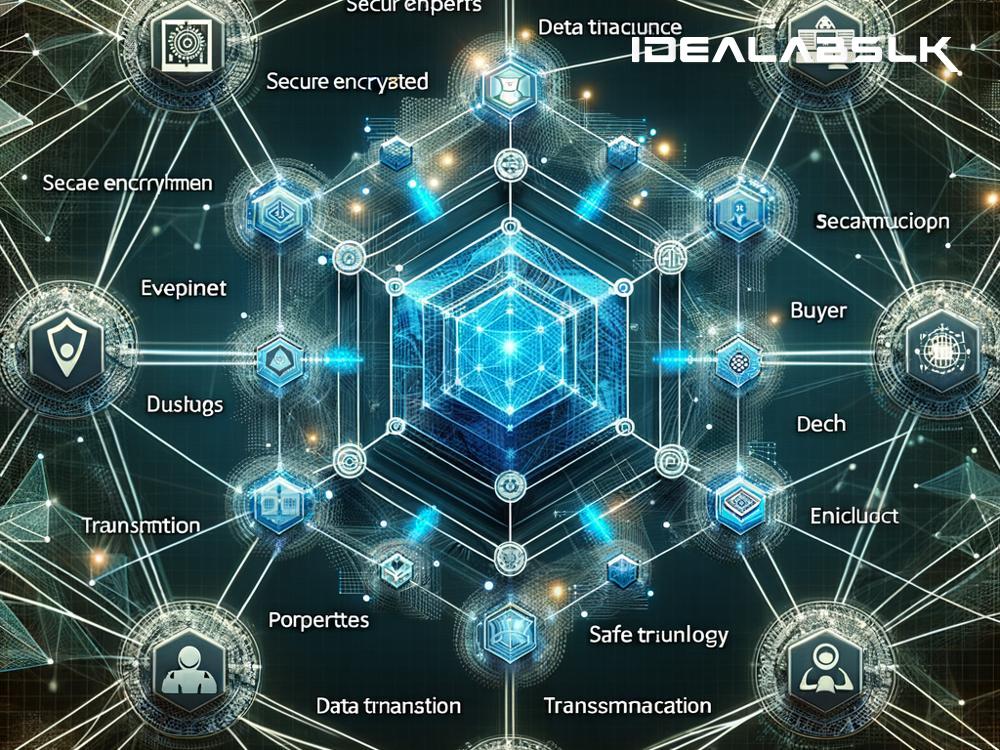Blockchain for Real Estate: Simplifying Property Transactions for Everyone
The world of real estate is on the verge of a major transformation, thanks to the integration of blockchain technology. This revolutionary tech, which is also the backbone of cryptocurrencies like Bitcoin, is set to simplify the process of buying, selling, and managing properties. Let's dive into how blockchain is making the future of real estate brighter, more secure, and incredibly efficient.
What is Blockchain?
First things first, let's break down what blockchain really is. Imagine a digital ledger that is completely transparent, secure, and impossible to tamper with. This ledger records transactions in blocks, and once a block is filled, it’s linked to the previous one, creating a chain. Hence, the term "blockchain." This technology is decentralized, meaning it doesn't rely on a central point of control, making it not only secure but highly resistant to fraud.
Revolutionizing Real Estate
Real estate, traditionally, is a sector riddled with paperwork, middlemen, and a fair share of uncertainties. From the endless documents that need to be signed to the myriad of fees paid to different intermediaries, the process can be daunting. However, blockchain is set to radically simplify and secure these transactions. Here’s how:
Streamlining Transactions
Blockchain can virtually eliminate the need for some intermediaries, like certain agents and lawyers, by facilitating direct transactions between buyers and sellers. Smart contracts, self-executing contracts with the terms of the agreement directly written into code, automate and enforce the terms of sale. This means faster transactions with less red tape.
Enhancing Security
The decentralized and immutable nature of the blockchain makes fraud almost impossible. Once a transaction is recorded in the blockchain, changing it would require altering all subsequent blocks and the consensus of the network, which is impractical. This significantly reduces the incidence of fraud in real estate transactions.
Improving Transparency
The transparency of blockchain ensures that all parties have access to the same information. This can be particularly transformative for the property history and title information, making it easier to verify that a seller legitimately owns the property and there are no hidden issues.
Tokenization of Assets
Blockchain enables the tokenization of physical assets, including real estate, making them more liquid (easier to buy and sell). Imagine owning a portion of a property the same way you own shares in a company. This could open up investment in real estate to a broader audience, as it lowers the entry barrier to smaller investors.
Efficient Property Management
Managing a property involves numerous transactions, from paying utilities to managing lease agreements. Blockchain can automate many of these processes through smart contracts, reduce overhead costs, and improve the overall efficiency of property management.
The Future of Real Estate
The integration of blockchain into real estate is already underway, with several companies exploring its potential. While the full adoption across the sector might take some time, the benefits of blockchain in real estate are hard to ignore. Here’s what the future could look like:
-
Buying and Selling Made Easy: The entire process of buying or selling a property could become as straightforward as a few clicks on a smartphone. This not only hastens the transaction but significantly reduces costs.
-
Global Investment Opportunities: Blockchain could make investing in real estate markets around the globe easier and more accessible, diversifying investment portfolios like never before.
-
Better Property Management: From lease agreements to maintenance contracts, every aspect of property management could be handled more efficiently on the blockchain.
-
Increased Trust: The transparency and security provided by blockchain will increase trust among parties, making real estate transactions smoother and less contentious.
In Conclusion
While we’re still at the dawn of blockchain’s integration into the real estate sector, the potential is undeniable. This technology promises to make buying, selling, and managing property more straightforward, secure, and efficient. As we move towards this future, it’s an exciting time for investors, property owners, and anyone involved in real estate. Blockchain is not just about cryptocurrencies; it’s about making real-life transactions easier for everyone. The future of real estate is bright, and it's digital.

